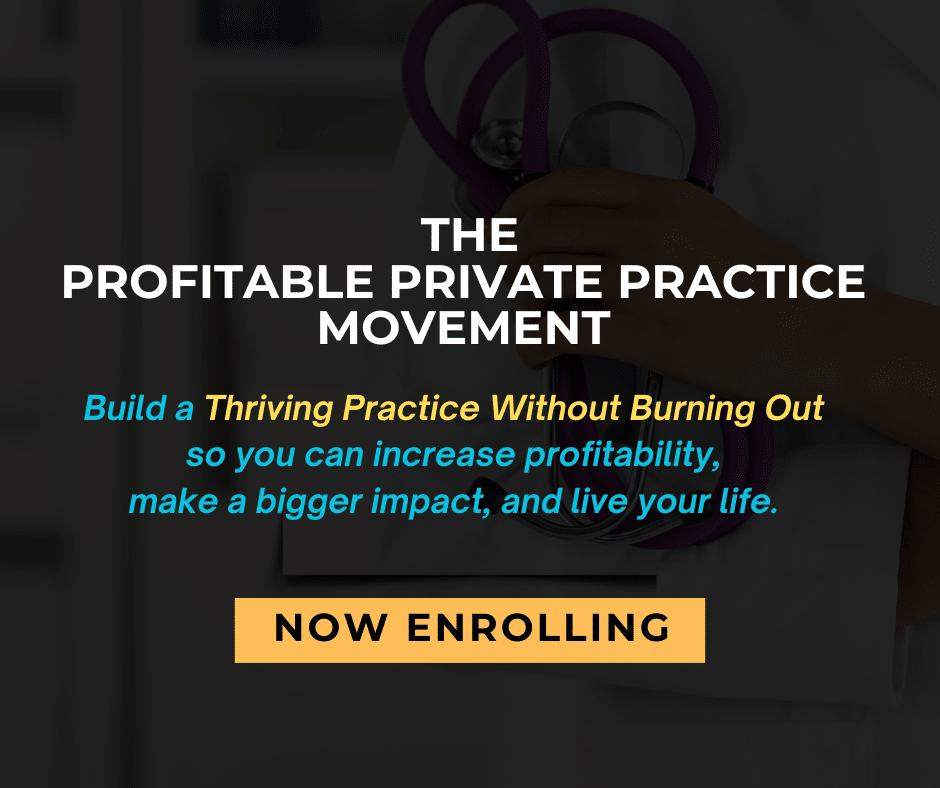Affiliate marketing is a term often used interchangeably with affiliate advertising. Technically:
“Marketing is the process of identifying customer needs and determining how best to meet those needs. In contrast, advertising is the exercise of promoting a company and its products or services through paid channels. In other words, advertising is a component of marketing.”
However, many people conflate the two terms and, along with affiliate programs, consider this a great way to add to their income stream. No matter how you describe it, using an affiliate program to promote products and services lets you earn a commission — the more followers take advantage of offers on your website, the greater the rewards you’ll be paid.
The simplest way to describe affiliate advertising, according to Michele McGown, Foot and Ankle Surgeon at the Center for Ankle and Foot Care, is this:
“Someone has products they want to sell, they pay you to advertise their products, and in return, you get a percentage of each sale. It literally is this simple.”
Affiliate Advertising Ethics
Aaron Morgenstein, MD, feels that physicians “tend to follow a pack like a school of fish or a flock of birds.” For better or worse, which makes it all the more important to do your homework and confirm you are passing on legitimate offers to your followers.
In an article called 10 Commandments of Ethical Affiliate Marketing for Physicians, Morgenstein sets out a 10-item “moral code” ensuring offerings include “respect for God, country, and other physicians.”

His 10 commandments (translated into plain English) cover the following:
- Disclose which hyperlinks are affiliate links (for which you’ll be paid a commission).
- Let your readers know how much commission you will earn from a sale on your site.
- Only promote products or services that you’ve tried yourself.
- Never promote second-class products or services if a better option exists.
- Fully disclose if you receive bonuses based on the number of people who use your affiliate link.
- Do not promote overpriced products or services.
- Don’t have others promote your affiliate link without providing full disclosure.
- You should let physicians buy products and services without using your affiliate link. In other words, don’t make money off your colleagues.
- Don’t promote affiliate links that collect physicians’ personal information, especially if they don’t disclose the goal.
- Never promote affiliate links that offer a one-time discount and then trap them into paying full price for subsequent purchases.
These set the stage for “physicians participating in affiliate programs…to uphold the high level of integrity and professionalism expected of a physician.”
Why Physicians And Doctors Should Consider Affiliate Advertising
It’s become almost de rigueur for physicians and doctors to have a website associated with their practice. This lets them share valuable information about healthcare, wellness, and other topics related to the medical field.
And along with dispensing helpful medical information comes the opportunity to earn extra revenue. But does monetizing your website traffic and client relationships make financial sense?
It does, according to these statistics. Eighty-one percent of people will click on a sponsored link when looking for health information. Sixty percent of healthcare companies intend to increase their content budget as content marketing becomes increasingly effective.
A good example of how this might work is advertising a wellness or weight loss program if you think your readers will find this helpful. In your blog section, you can write a post outlining valuable wellness and weight loss information and then promote or advertise a reputable weight loss program or supplement.
By posting the affiliate link on your site, any of your readers interested in the brands you recommend may click through to the weight loss site to purchase their program or supplement.

And it’s not limited to posting affiliate programs to your website. Make sure to promote the link or advertisement on your social media channels like LinkedIn, Twitter, and Facebook.
Affiliate marketing is:
- A low-cost and low-risk investment. All you need is a website and some time.
- Easy to create scale. Many companies offer affiliate programs that allow marketers to promote their products and earn commissions from each.
Looking for more reasons why you should consider affiliate advertising? How about these compelling statistics?
In 2022, American business spending on affiliate marketing hit $8.2 billion. Estimates on the industry expect it to grow to 15.7 billion by 2024.
How Affiliate Advertising Works
Affiliate advertising is a form of marketing in which an individual or business promotes another company’s products or services and earns a commission for each sale. The affiliate acts as a middleman between the company selling the product or service and the customer who buys it.
When someone clicks on an affiliate link, they are taken to the company’s website or product page. If they make a purchase, the affiliate receives a commission. This commission can be a percentage of the sale amount or a flat fee.

The affiliate will usually create a special URL that is tracked back to them. This lets the company know when a customer comes through their affiliate link. Affiliates may also use tracking codes to track impressions (the number of times a banner ad was displayed) and clicks (the number of times someone clicked on an ad).
Affiliate programs are typically free to join and easy to set up. Companies provide affiliates with unique tracking links that can be used in blogs, websites, emails, online advertisements, and more. Affiliates can then begin promoting the company’s products or services and earning commissions when customers make purchases.
Most affiliate networks offer various products and services that can be promoted. Companies typically pay affiliates every month for any sales generated through their links.
The Downsides of Affiliate Advertising
Although affiliate advertising can be a great way to make extra money, there are also a few potential downsides that healthcare professionals should consider before getting started.
One of the main issues with affiliate advertising is that it can take time to ensure that the product you are promoting benefits your patients. In addition, because the products are often chosen by the advertiser rather than yourself, the product could be of poor quality or not beneficial to your patients.
In addition, if your patients click on an affiliate link and make a purchase without researching the product, they may feel like they have been taken advantage of.

You will also need to be aware of any legal regulations or restrictions in your area when it comes to promoting affiliate products. For example, some states have laws prohibiting medical professionals from receiving commissions for recommending products or services to their patients. It is important to be aware of these regulations and abide by them to avoid legal repercussions.
Many physicians and doctors may find the time investment required to maintain an affiliate program significant. Depending on the size and complexity of the program, it can require hours of research and management each week.
Ways Affiliate Advertising Can Benefit Healthcare Merchants
Affiliate advertising is an attractive option for healthcare merchants looking to increase their sales and marketing reach. It allows merchants to pay a commission to affiliates or influencers for sales generated from their network.
This allows healthcare merchants to tap into a vast network of potential customers without investing in costly marketing campaigns.
The advantage of using affiliate advertising as a healthcare merchant is that there is no upfront cost. Healthcare merchants only pay when they get results, making it a cost-effective way to promote products and services. Since there is no upfront cost, healthcare merchants can scale up quickly and measure success easily, ensuring they get the most out of their investment.
With affiliate advertising, healthcare merchants have the potential to reach a larger audience than they would with traditional marketing methods. This can help them generate more leads and convert more customers. Since the system is performance-based, healthcare merchants only pay for what works and what produces results. This makes it a great option for those looking to maximize their return on investment.

Finally, by leveraging the power of influencers and affiliates, healthcare merchants can create highly targeted campaigns tailored to their audience. This helps them better engage with their customers and encourages repeat purchases. In short, affiliate advertising can be a great way for healthcare merchants to boost their marketing and sales without investing heavily upfront.
Data gathered from the referrals can give healthcare merchants insights into the preferences and behaviors of their customers.
For example, with affiliate advertising, tracking which types of services and products are most popular among physicians and doctors is possible. Knowing this information can help merchants create targeted campaigns and promotions that better suit the needs of healthcare professionals.
Additionally, the data from referrals can help merchants measure how effective certain tactics and strategies are at generating conversions. This type of information can also be used to improve the customer experience and provide more tailored solutions.
It is clear that the data collected through affiliate advertising can benefit healthcare merchants in various ways. With this information, they can tailor their offerings to better meet the needs of physicians and doctors and potentially increase conversions in the process.
Things To Consider Before Getting Started With Affiliate Advertising
Here are a few things to consider before getting started with affiliate advertising. By taking the time to research and understand all of these aspects, you can make an informed decision about which program may be right for you.
Research. Before getting involved in affiliate advertising, it is important to research the industry and what types of products are offered. You should also look into the terms and conditions of the program and potential competitors. This will help you understand what you need to do to be successful.
Relevance. Another important thing to consider before getting started with affiliate advertising is the relevance of the products or services you are promoting. Make sure that the items you promote are relevant to your specialty and/or target audience. This will ensure that your efforts are more likely to be successful.
Reputation. Before getting involved in affiliate advertising, it is also important to assess the program’s reputation. Are there any complaints about it? Is it reputable? Do other people recommend it? These questions can help you make a better decision about whether or not this is the right program for you.
Time Commitment. Managing affiliate advertising for a healthcare site can be a time-consuming process. While the initial setup may only take a few hours, there are ongoing tasks to manage as your affiliate program grows.

When setting up an affiliate program, you’ll need to create your program’s terms and conditions and decide on the commission rates you’re offering to your affiliates. You’ll also need to sign up with an affiliate network, and if you still need an e-commerce store, you’ll need to set one up.
After that, you’ll need to recruit affiliates to join your program. This could involve contacting influencers or writing blog posts or press releases about your program. Consider offering incentives or promotions to attract more affiliates.
Once you have affiliates signed up, you’ll need to continuously monitor their performance. This includes tracking clicks, sales, and other conversions from their affiliate links. You should also regularly check in with your affiliates to ensure they are satisfied with the program and continue to promote it in a positive light.
Finally, you’ll want to review your affiliate program and make changes as needed. This could involve updating your terms and conditions, modifying commission rates, or removing inactive affiliates from the program.
Setting up and managing an affiliate program for your healthcare site takes quite a bit of time. However, it can be a great way to generate additional revenue while simultaneously giving your site additional exposure and traffic.
Manage Your Expectations As An Affiliate Advertiser
Managing your expectations is important if you’re considering affiliate advertising for your healthcare business. According to a survey from Influencer Marketing Hub, most affiliate marketers earn less than $10K per year.
In fact, only 16.87% of respondents reported making $50k or more. While making much more than this with affiliate marketing is possible, it’s not the norm.
For example, Matt Giovanisci’s site, Swim University, made $149,991 in affiliate commissions in 2021. It took years of hard work and dedication to reach this level of success.

It’s also important to remember that getting into affiliate marketing isn’t a get-rich-quick scheme. You may have heard stories of overnight successes, but these are rare.
It takes hard work, time, and the right knowledge to make a successful career out of affiliate advertising. With dedication and persistence, however, success is possible.
If you keep all the above in mind — the ethical considerations, potential downsides, the research required, and the time you’ll need to invest — affiliate advertising can be a great way to move from being a physician or doctor to a successful entrepreneur, living life on your own terms.
If you’d like to learn more about becoming a successful medical entrepreneur, get a copy of my book, Made for More: Physician Entrepreneurs Who Live Life and Practice Medicine on Their Own Terms.


